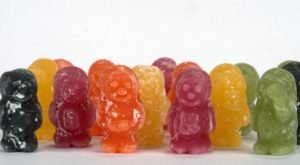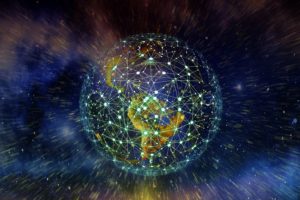 I don’t write much about politics. Not because the way we engage with each other isn’t important. But because my focus has always been on the individual journey.
I don’t write much about politics. Not because the way we engage with each other isn’t important. But because my focus has always been on the individual journey.
There’s so much to be spoken about right now. And so much to be heard.
There are powerful words being said and written by others much better suited than me to speak to the realities of not being white and male. I’d rather let those voices speak for themselves and encourage others to listen.
I can only offer a private realization I’ve made in the past that has been useful for me.
Our Mind Wants to Create an “Us”
When researching an article a few years ago, I came upon the social psychology methodology of the minimal group paradigm. It was one of the foundations of social identity theory and researchers used it to explore how much distinction is required to create an in-group bias.
Basically, it asked what it took for a person to create an “us” that would then lead to creating a “them” as well.
And it turns out that it takes very, very little. Researchers found they could create arbitrary groups and people would instinctively start preferring their own group members. This means even a random coin flip could make you feel like you should be biased towards your own group over others.
That’s an internal mechanism that might have been useful when we were in warring tribes in the far past.
But it’s pretty counterproductive now.
Who is Your Tribe?
 The world is full of differences that aren’t randomly selected. Differences that are easy for us to see. Gender, religion, and yes, skin color, are just a few of these.
The world is full of differences that aren’t randomly selected. Differences that are easy for us to see. Gender, religion, and yes, skin color, are just a few of these.
And so we have to be aware that our brains don’t need much context to start dividing our world. Like a parent cuts up pancakes for a child, the mind wants to move the pieces of our world into distinct places and leave them there.
But that doesn’t mean you have agree with your brain’s knee-jerk reaction. While it’s trying to view the world through a specific lens, you can recognize the limitations it has. And you can choose a different worldview.
I think this suggests two actions for us to take:
1. Intentionally and purposefully expanding our idea of us.
It’s instinctual for us to want to create an in-group and then find a way to be a part of it. We want to be included. Don’t fight that instinct, but instead harness it and always look to create a bigger group. You’ll know you are finished with this project when you can include all of humanity in your “us.” (In fact, it would be great to include animals, plants, and the whole Earth, but let’s start with all of the humans).
2. Consistently testing our own assumptions about other people’s actions.
It’s easy to ascribe positive motivations to ourselves and our perceived “us” and negative motivations to those who are other. But easy doesn’t mean correct. This is the on-going discipline that is necessary to change how we interact with each other. It doesn’t need to happen once or twice, but consistently and constantly.
This is a Journey, Not a Moment
 Taking action on these two steps isn’t something that happens in a moment. But over a lifetime. You should always be working on both of those areas.
Taking action on these two steps isn’t something that happens in a moment. But over a lifetime. You should always be working on both of those areas.
I know that I am.
I grew up in Milwaukee, which has been consistently ranked as one of the most racially-segregated in the U.S. So I grew up very aware of race.
Fortunately, I also grew up influenced by family and friends who demonstrated the power of judging people by the content of their character instead of what they looked like. And I was exposed to a rainbow of cultures and people through school, work, and travel which meant that my internal idea of us has been consistently challenged and expanded.
But it’s still a road that I walk every day. Sometimes I do well, sometimes I falter. But I’m committed to continuing to walk it in this moment and the next.
I hope you’ll walk it with me.
